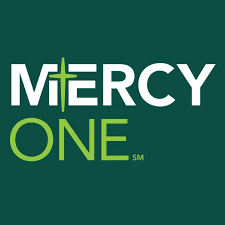How will accountable care organizations unfold?
Health-care organizations building infrastructure to offer cost-sharing model in Iowa

EDITOR’S NOTE: This archived story originally ran in the Business Record on Dec. 2, 2011
Accountable care organizations, one of the lesser-known pieces of health-care reform, are about to make their debut.
The new medical payments model, designed to motivate health-care providers to improve the quality of care while trimming costs, will ramp up in Iowa early next year.
With a framework established by the Patient Protection and Affordable Care Act of 2010, accountable care organizations (ACOs) could be the vanguard of true reform, experts say, a shift from a fee-for-service model to a quality-based health-care payments system. However, doctors and insurers alike expect a long and difficult road to get there.
“In my mind, it is really going to be the prevalent way to practice in the future,” said Dr. Michael Kitchell, an Ames neurologist and former president of the Iowa Medical Society. “We need to see that all the providers are collectively responsible for keeping their patients healthy and out of the hospital.”
ACOs are defined as voluntary groups of physicians, hospitals and other health-care providers that assume responsibility for the care of a clearly defined population of patients. As such, ACOs will be eligible to share in the savings generated by providing more cost-effective care, provided they also meet quality standards. Eventually, the model will also require health-care providers to share in the financial risks if medical costs don’t decrease.
“Right now, we’re paid on a fee-for-service basis, so the incentive is to generate volume, versus an accountable care organization, where we get paid for the quality of care provided,” said Dr. Alan Kaplan, vice president and chief medical officer of Iowa Health System. “In a value-based world, I might ask you about your problem via email, and rather than have you come in, I could say, ‘Should I just call in a prescription?’”
ACOs, which are voluntary affiliations, shouldn’t be confused with health-care purchasing exchanges, which under the Affordable Care Act every state will have to establish by 2014 or use a federal version. Purchasing exchanges will be made up of health-care users on the “buyer” side of the health-care equation, while ACOs will be on the provider or “seller” side of the transaction.
A major step in the journey toward accountable care organizations occurred Dec. 1, when the Centers for Medicare and Medicaid Services (CMS) began accepting applications for its ACO model, the Medicare Shared Savings Program. Through that program, CMS will consider applications from health-care providers that are willing to establish and test variations of payment plans, the results of which CMS will then use to evaluate the most efficient approaches. At the same time, health insurance companies, including Wellmark Blue Cross and Blue Shield, are working with major health-care providers in the state to form private-sector versions of ACOs.
Right direction
Paul Pietzsch, president of Health Policy Corporation of Iowa, a Johnston-based nonprofit coalition that develops and supports cost-containment and quality initiatives, said there is widespread support for establishing a payments system that rewards value. The organization’s members include some of Iowa’s largest employers, among them Hy-Vee Inc., Deere & Co. and Alcoa Inc.
“I think that most stakeholders that I talk with think that’s the right direction,” he said. “The overall model is supported not only by the consumers and purchasers that I work with; I also think the major constituency groups want to move toward a value-driven payments system.”
A majority of U.S. health-care industry leaders feel the same way, according to a recent report released by The Commonwealth Fund, a New York City-based private foundation focused on improving the nation’s health-care system.
“Despite continued debate in Washington and legal challenges in the nation’s court system, nearly nine out of 10 health care opinion leaders think it is important for federal and state policymakers to move forward in their work implementing the reform law,” the report said.
Kitchell said he doesn’t see many alternatives to changing the system. “The status quo is not acceptable,” he said. “The current system is too fragmented. (Doctors and hospitals) don’t coordinate the care. A team type of approach is clearly showing better results for both quality and cost.”
Health-care organizations rejected preliminary rules that CMS came out with early this year as unworkable, which prompted the agency to modify the program. The updated rules, released last month, are “a step in the right direction” for getting health-care providers to participate, Pietzsch said.
One of the most significant changes was a reduction in the number of quality measures from 65 to 33, making the program less onerous for providers to deal with, he noted.
“We’d rather see 65, and the providers would probably like to see zero,” he said. “But they’re trying to reach a compromise. Patients want transparency so they feel they aren’t being shortchanged on care, that they’re going to get good care.”
Iowa Health’s Kaplan said he believes the quality-based model is here to stay, regardless of what happens in the U.S. Supreme Court or the presidential election. “Whether people like the detail (of the health-care overhaul) or not, the one thing it did do was start people moving to reform the delivery of health,” he said. “That train has left the station now.”
Kaplan said Iowa Health is developing an ACO structure for both the Medicare and private insurer sides of the market. The parent organization of Iowa Health – Des Moines, Iowa Health System comprises 14 hospitals and employs 650 physicians in Iowa and western Illinois.
Because health systems will compete nationally to participate in the initial Medicare Shared Savings Program, it’s not certain whether Iowa Health will be able to begin offering a Medicare ACO in 2012, Kaplan said.
“I have no idea what the interest will be out there,” he said. When Iowa Health does launch its program, “it’s most likely that we would roll it out initially in regions where we have large numbers of employed primary care physicians, because patients (access the system) through the primary care physicians, not the hospitals,” he said.
In preparation for ACOs, Iowa Health is developing what it calls an “ACO infrastructure,” with teams working on numerous aspects of the program.
“We have one group looking at medical programming, for example, the statewide use of the ‘medical home’ concept,” Kaplan said. “We have other teams working on analytics so that we have robust information, and other teams working on support structures needed. So we’re firing on all cylinders on building the infrastructure needed. How we’ll go about (implementing it) will depend on the demographics of each region.”
Cost sharing
Iowa Health isn’t the only health-care organization in the state working on ACOs. Several other major providers are also negotiating with Wellmark to form private ACOs. said Mike Fay, Wellmark’s vice president of health networks.
“We have draft contracts in the hands of health systems for their review,” with a goal of rolling out those ACOs by April, he said.
“The main distinction we see with ACOs is that you’re trying to get health-care organizations to take care of the population, rather than individuals,” Fay said. “We are giving these organizations a list of our members and asking them to manage their total health. … We want to present opportunities (for improvement) where we see them, and let the organizations figure out how to make those changes.”
“I think the challenge will be how to pick a manageable set of targets to work on,” he said. For instance, one health group may want to address a higher-than-desired level of hospital readmissions, while another may want to address ways to get more patients in to see their primary care doctors for preventive checkups.
Similar to the Medicare model, which calls for ACOs to handle at least 5,000 patients, Wellmark anticipates that each ACO will be responsible for a minimum patient population in an effort to reduce the risk of only the sickest people participating. “We’re also asking providers to enter into it for a five-year period,” Fay said.
Wellmark will use a three-tiered model for cost sharing; participating health systems will be eligible for those savings after meeting specific quality measures, among them patient satisfaction. Providers will choose from a cost-sharing level of 50, 60 or 70 percent, meaning that they will be eligible to apply that percentage to the difference between their target per-employee health-care cost and their actual cost at the end of the year. So a provider that chooses a 70 percent cost-share with a $300 per-patient target cost that actually comes in at $295 for the year would get to keep 70 percent of the $5 per-patient savings, while Wellmark would keep the remainder.
For the first two years, there will be no downside risk of sharing higher costs, but by the fifth year, organizations would be exposed to equal percentages of upside and downside risks in cost sharing. Additionally, providers can qualify for bonus payments if they meet quality measures beyond specified levels.
It will take time for the new model to gain traction, Fay said.
“I think you have to start with the provider component, and then go to the consumer market and say, ‘Here’s on a scale of 1 to 100 how these organizations compare.’ If there’s a significant difference, does the consumer or employer make a different decision?”
Other providers take go-slow approach to ACOs
The Iowa Clinic, one of the largest multi-specialty practices in the state, has not made any final decisions regarding accountable care organizations, said Ed Brown, the organization’s president and CEO.
“We will be participating in the market with whatever (model) makes sense,” he said. “It’s very early on in the process and the evolution to know exactly where the accountable care (pilot programs) are going.”
Mercy Medical Center – Des Moines is also evaluating whether the program makes financial sense to pursue, spokesman Gregg Lagan said. Mercy recently appointed Dr. David Swieskowski as its chief accountable care officer.
Broadlawns Medical Center has not yet made any decisions regarding ACOs, spokeswoman Mikki Stier said.








